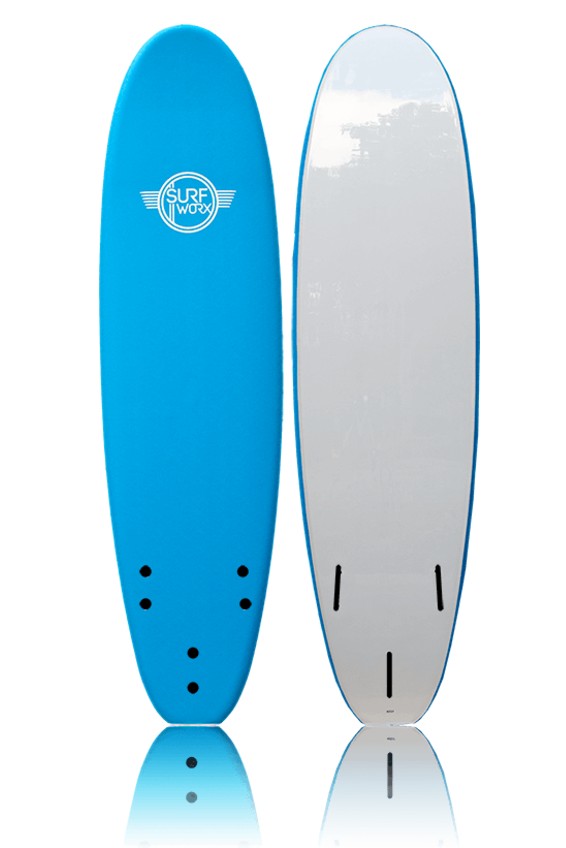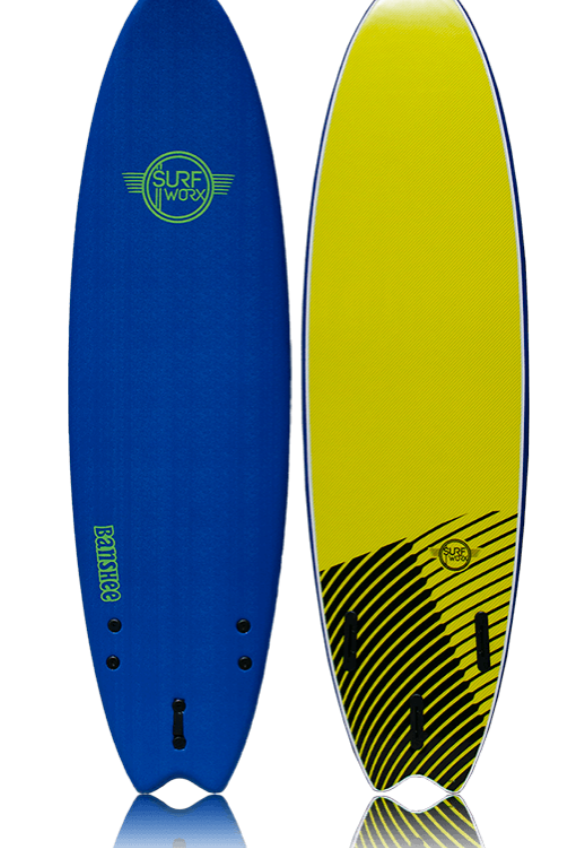Guide to Surfboards

When trying to choose the right surfboard, there are a number of factors to consider.
First look at your height and weight, as a beginner you will want a board that is longer than you (approx. 2ft) and has approximately the same volume as you weigh, e.g. 60ltrs for 60kg. This will give you more room to learn to pop up and will be easier to paddle into waves while you are learning. A beginner board will last a good long time for most people, the skill of surfing takes some time to master! A minimal or longboard foamie is a good option.
Foam boards (foamies) or soft boards / soft top boards are ideal for beginners. They are safer for learning and are more durable- while they might dent with a knock, they will still be intact and as a learner, you will have many falls that you need to get right back up from! They are also more affordable 😊
As you progress and learn to ride the waves, you might want something that moves a bit quicker and turns easier. You can now look at a board that is a bit smaller as your paddle will have gotten stronger and you will be more confident on your feet. You could look at a smaller minimal or even a fishtail / hybrid- which has plenty of manoeuvrability but is still wide.
Surfers who ride shortboards are usually at a very advanced level, which requires years of regular surfing to master the skills required, but some short foamies are also a great option for smaller kids! Kids are more nimble and lighter than adults and when learning to surf can often just jump onto their board to catch a wave with very little paddling required. Learning to ride a shortboard at a young age is great, because they will progress quickly and have plenty of fun! A 6ft board such as the CBC, Quiksilver Bat, or any of the Surfworx range are a good choice.
As you progress and you have a good strong paddle and have mastered the skills of popping up (and staying up!), riding waves and understanding the waves, you might be looking to progress to a hard board.
Hardboards are faster and lighter, they glide well in the water and turn much easier. They also can be damaged easier and if you dent your board, best advice is to get it repaired before the taking it back out. This is why it is important to have developed your skill before changing over, you want to be confident and ready- but when you are, you will unlock a whole new level of fun!
There are many options of hard board available, and different boards will suit you depending on the way you surf and the waves you surf, so if you need advice just ask. It is also worth testing as many friends’ boards as possible to get a feel for what it is you like, trying different options is really going to help you decide what you are looking for!
Lastly, for all boards, and especially hard boards, investing in a good bag will protect it from any uneccessary damage- don’t ruin your day by arriving at the coast, taking out your board and realising it has been damaged in transit!

